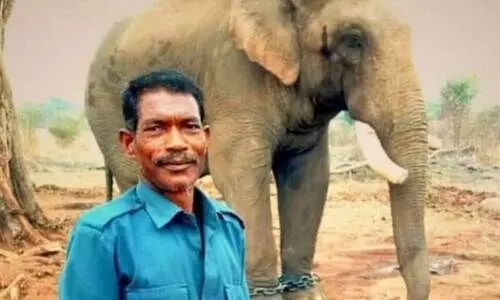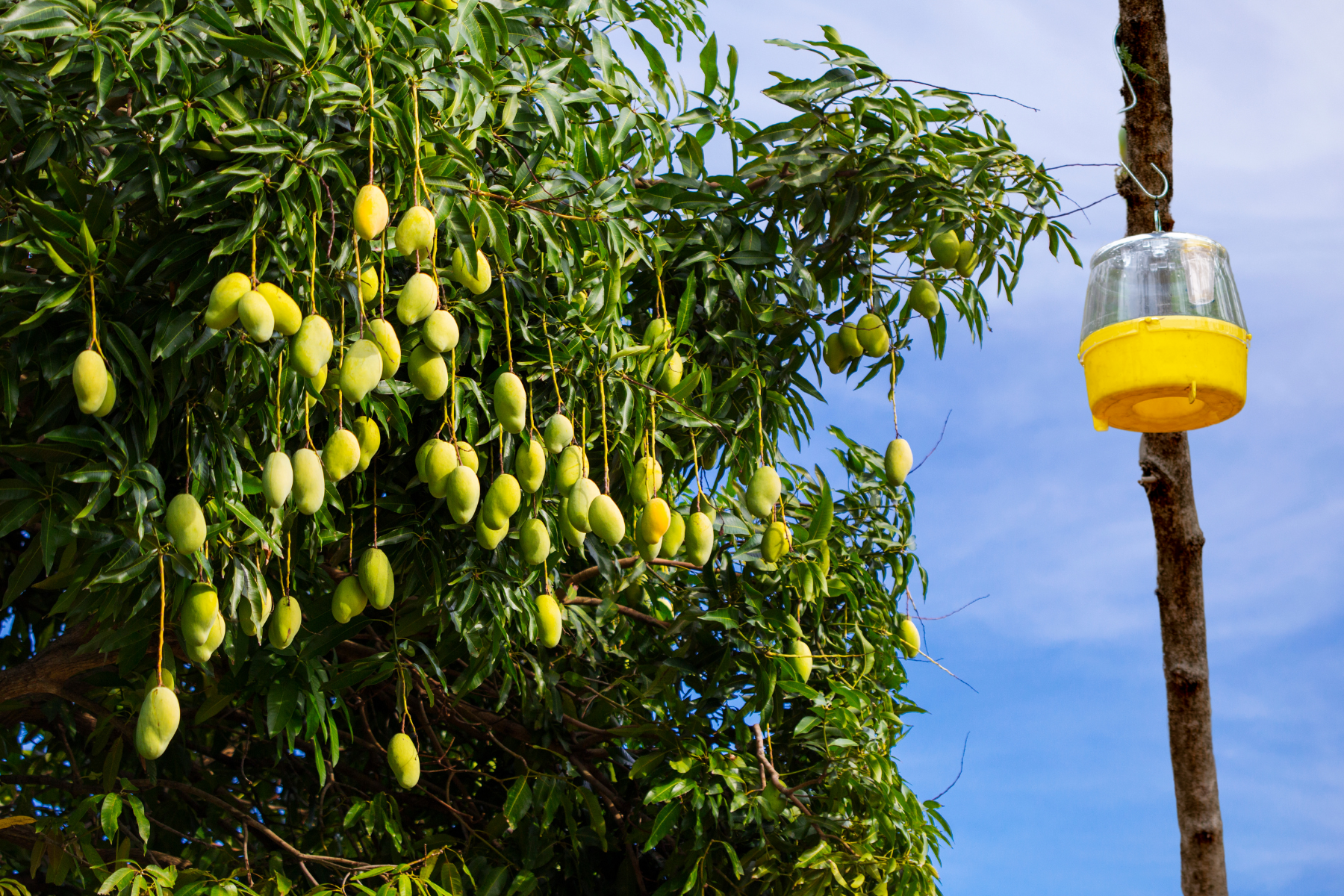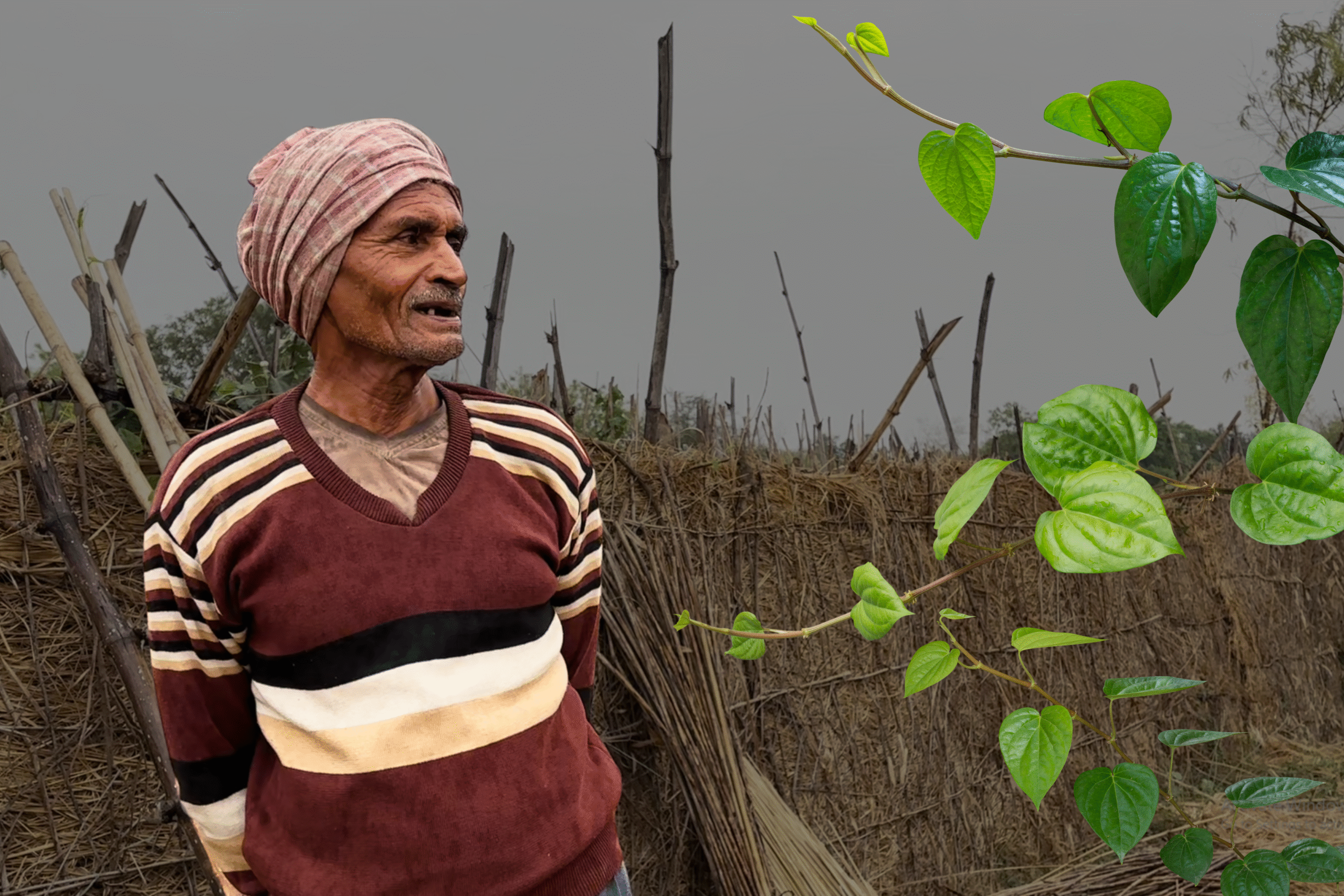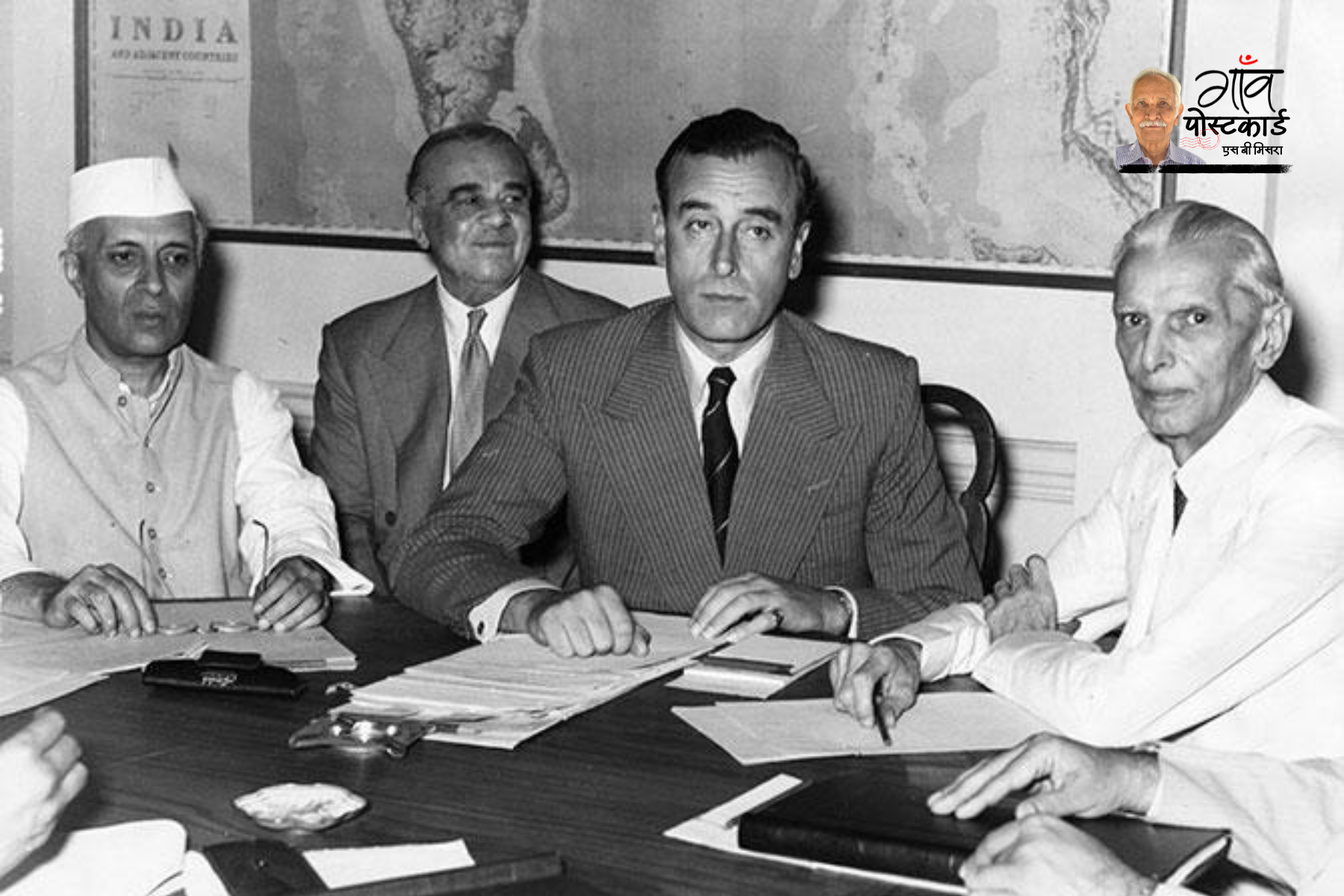Panna, Madhya Pradesh
Ever since its arrival at the Panna Tiger Reserve in 2002, ‘Rambahadur’, a wild elephant, was trained and looked after by mahout Budhram Routia. In the two decades, 57-year-old Routia led the elephant on umpteen campaigns which involved formidable tasks like tranquilising tigers and maintaining a vigil in the forests.
However, the mahout-elephant relationship ended violently on July 4 when Rambahadur killed Routia.
“It is really unfortunate that the animal which Routia cared for should have killed him. The incident has struck terror amongst other mahouts in the forest,” Uttam Kumar Sharma, area operator of the Panna Tiger Reserve told Gaon Connection.
Following the incident, the elephant has been chained up and is not being used for any forest-related work, he added.
Some mahouts in the tiger reserve, on condition of anonymity informed Gaon Connection that Rambahadur had killed another forest ranger named BS Bhagat in a similar incident two years ago.
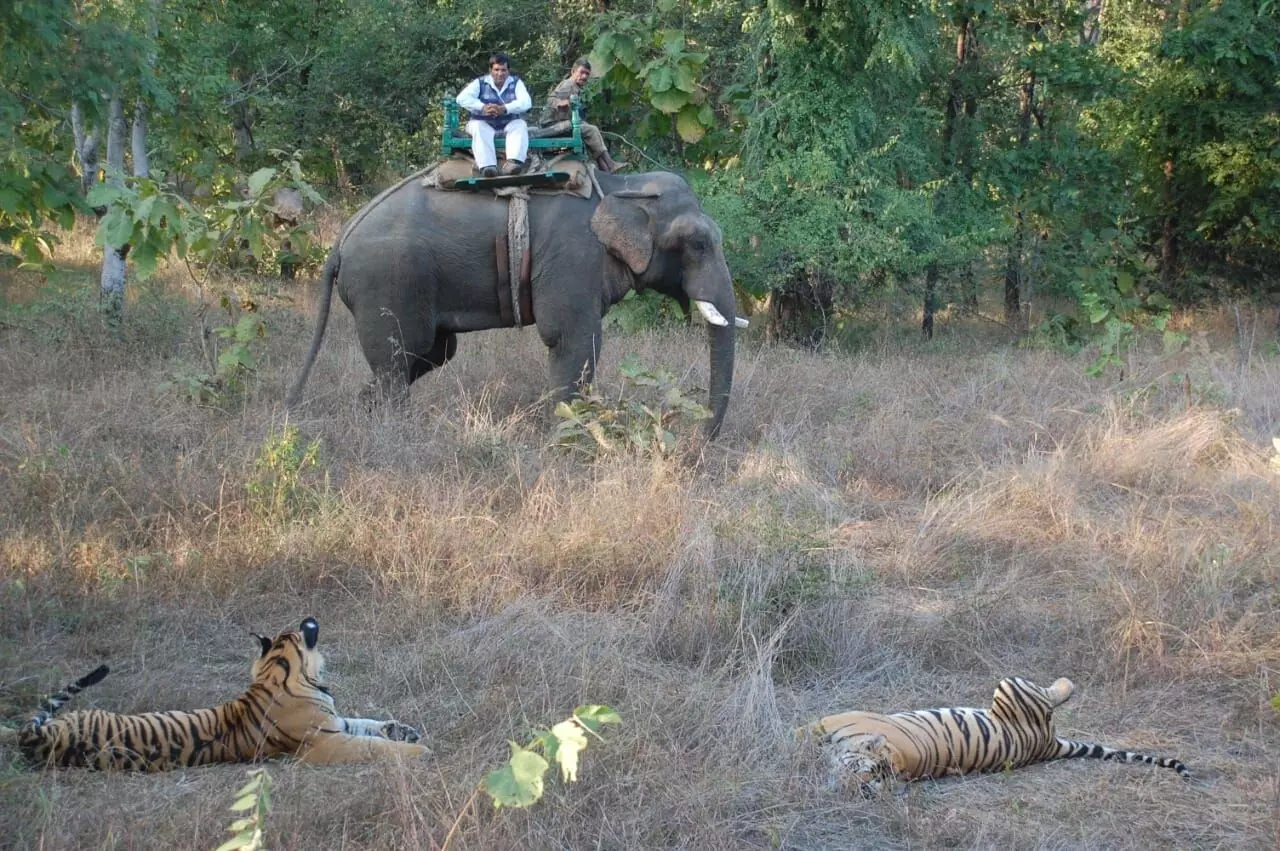
“This elephant is known to be aggressive. Following the incident in which Bhagat was killed, the elephant was put into isolation with only its mahout for company. Both Bhagat and Routia were killed in an identical manner — the elephant used its tusks to strike the two forest workers in their chests. It is really worrying to see Rambahadur so aggressive,” a mahout said.
Meanwhile, the Panna Tiger Reserve issued a note lauding the mahout.
“Budhram’s was an inspiring story. He was a person of short stature but had a big heart, still bigger personality and extraordinary courage… Elephant Rambahadur, who dominated all other elephants in PTR, had one master: Budhram Routia,” the note mentioned.
The note also added that after Bhagat was killed, it was only Budhram who dared to manage Rambahadur. And he did it till his last day.
Played a vital role in tiger management
Talking to Gaon Connection about the incident, Rangaiah Sreenivasa Murthy, former director of the Panna Tiger Reserve expressed regret. Showing an old photograph of the tusker, he said Rambahadur was his personal favourite while he was at the helm of affairs at the forest reserve.
“Rambahadur played a crucial role in reviving the population of tigers in Panna. He was extraordinarily receptive whenever we encountered tigers, it was as if he understood that tranquilising the big cats was a team effort and he complied with his mahout’s commands with an efficiency of a trusted lieutenant,” Murthy recalled.
Despite his occasional uncontrolled outbursts of rage, Rambahadur has been a prized asset for the forest reserve.
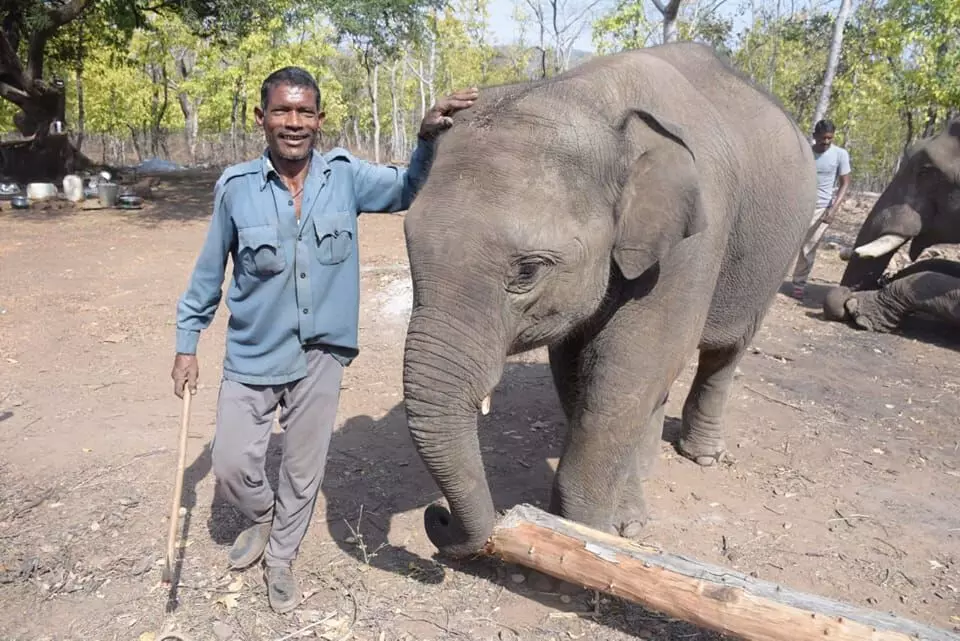
Elephants are known to have great memory and at times remember every minute detail of their interactions with fellow elephants or even humans.
Murthy, the former director of the reserve told Gaon Connection that Rambahadur has participated in a record number of tranquilisation exercises.
“In my own tenure at the reserve, this elephant led its mahout in tranquilising more than 50 tigers. Without the contribution of Rambahadur, the tiger population at Panna couldn’t have been revived to such an extent,” the former director said.
According to Murthy, “Asir Jawahar Thomas Johnsingh, a famous wildlife scientist from the Wildlife Institute of India was intrigued by Rambahadur upon witnessing the tusker holding his breath while the mahout stood on its back aiming a tranquiliser at the tiger. Johnsingh had remarked that he had never seen an elephant being so calm and composed when in musth,” he said.
Elephants aggressive when in heat
When asked about what he thinks could have aggravated Rambahadur, Murthy remarked that perhaps being kept isolated from other elephants could have irritated the tusker.
Meanwhile, Sanjeev Kumar Gupta, the veterinary doctor for wild animals at Panna Tiger Reserve told Gaon Connection that the elephant was seen to be in the musth stage longer than an average male elephant.
“If you see at the top corner of the eyes of the elephant, there’s a secretion flowing down its skin. This secretion comes out from the temporal gland and is known as the pheromone which has a distinct smell and it helps in attracting the female elephants. Apart from the pheromones, the production of the male sex hormone testrostrone is also more than 20 times the usual level during the musth. This makes the elephant highly aggressive and prone to outbursts of anger,” the doctor said. This might have led Rambahadur to killing his mahout, he added.
Rambahadur’s violent streak
Elephants are known to have great memory and at times remember every minute detail of their interactions with fellow elephants or even humans. MP Tamrakar, former assistant director of the reserve told Gaon Connection that since the elephant was not used for any operations in the reserve for the last two years, chances are that this idle time led the elephant to become more aggressive.
Also Read: Vatsala, Panna Tiger Reserve’s senior- most citizen is more than a 100 years old

“After it killed a ranger two years back, Rambahadur wasn’t used in any patrolling or tranquilising operation. The spare time often results in destructive activities especially when the tusker is in heat. Also, the animal has a memory that the human mind can’t possibly comprehend. Any minute altercation with the mahout can surface in the mind of the elephant when it’s got nothing to do and is in heat. There’s a possibility that the elephant must have lost its cool with the mahout and killed him in a fit of rage,” Tamrakar said.
Meanwhile, it is learnt that the tusker was captured from the forests of Chhattisgarh in 1993. And, he was already infamous for killing a number of forest dwellers in the area.
“There’s no doubt that Rambahadur had a violent streak in him from the beginning. But such is the case with almost all wild animals. The violent tendency also helps these elephants in facing up to tigers. Domestic elephants would retreat at the sight of a charging tiger in the jungle. We need trained wild elephants to conduct operations in the reserve,” he said.
When asked about the future course of action, field director Uttam Sharma said that a report has been sent to the higher authorities and Rambahadur is presently in captivity.
“The reply to the report will decide what is to be done with Rambahadur,” Sharma said.

